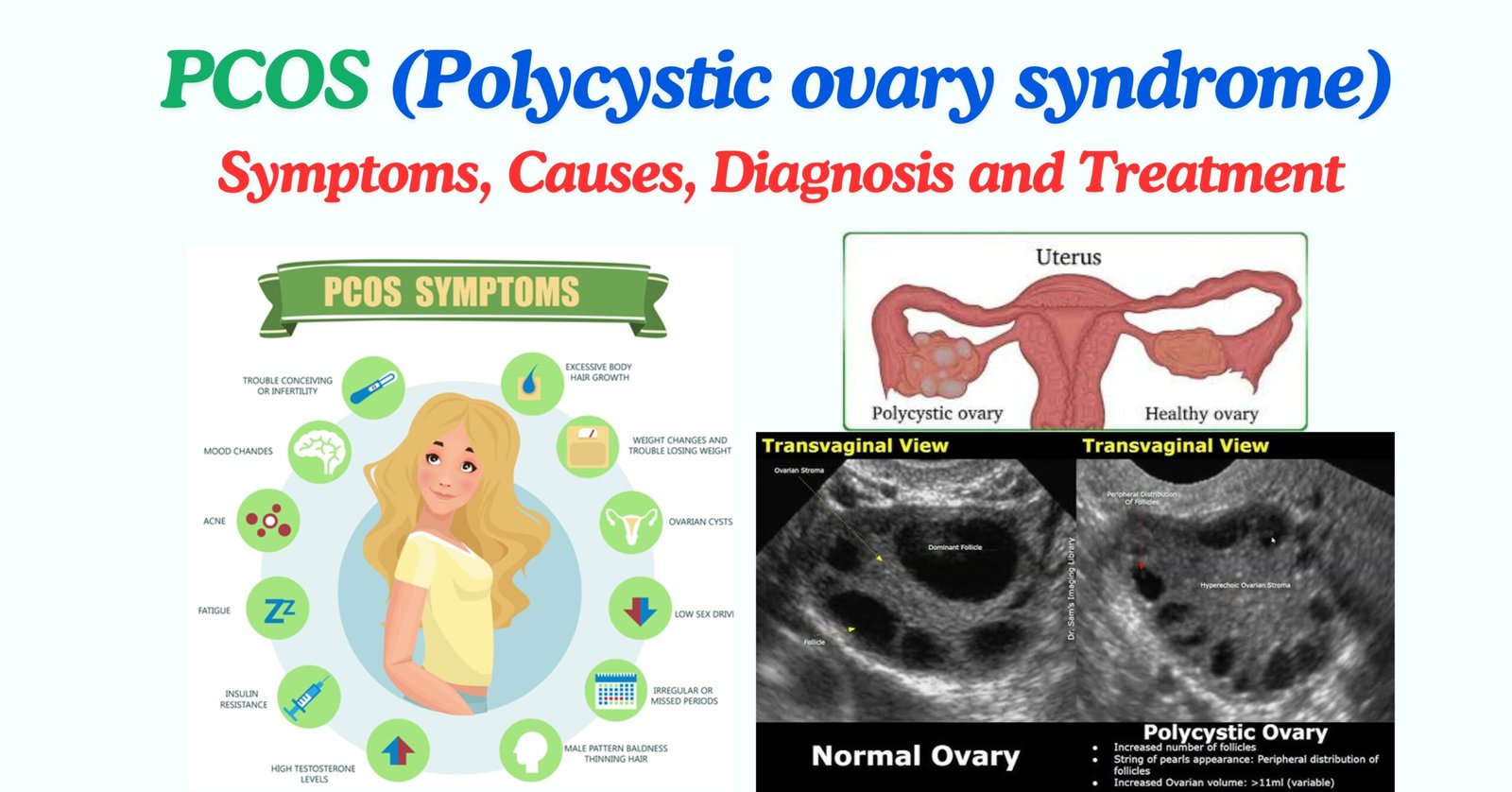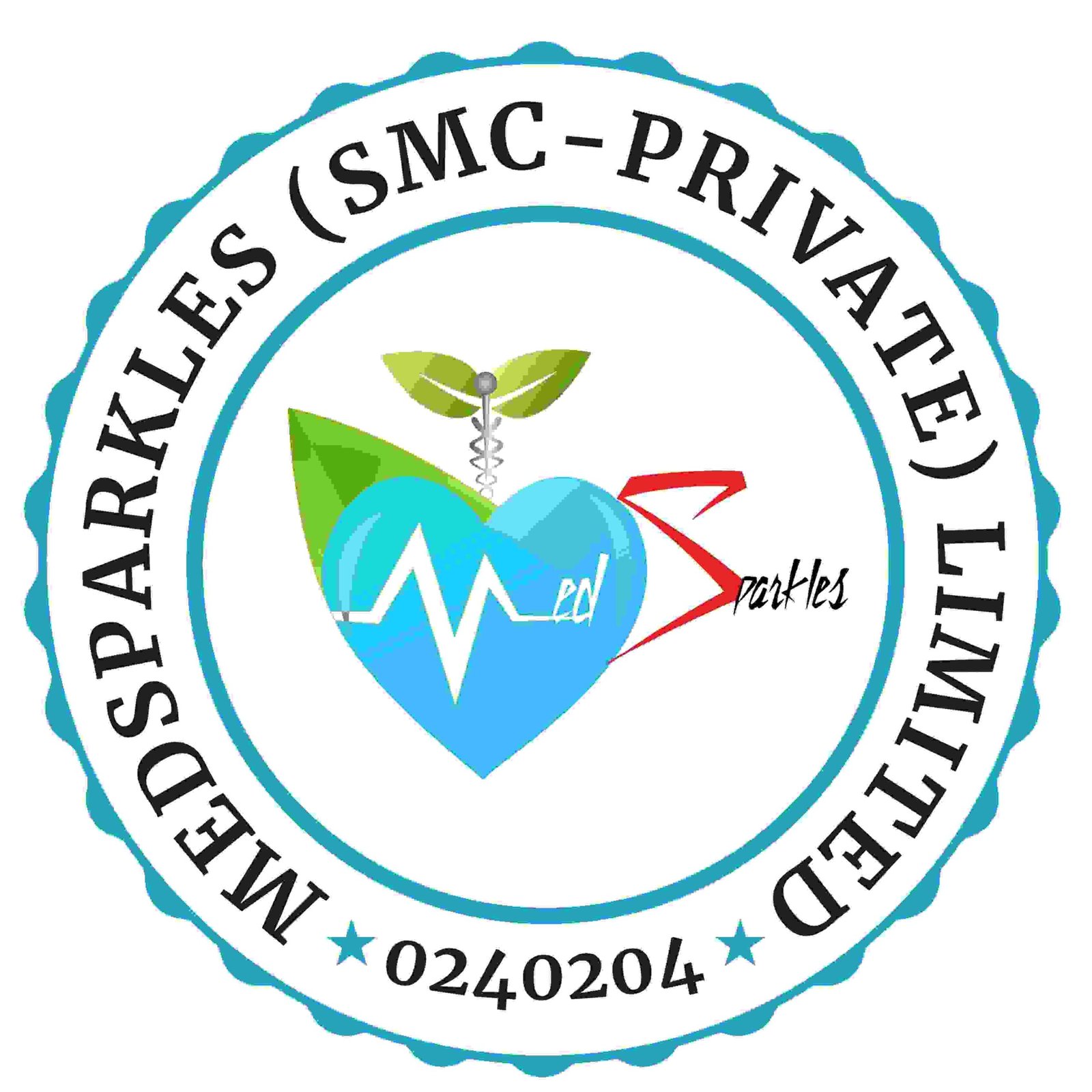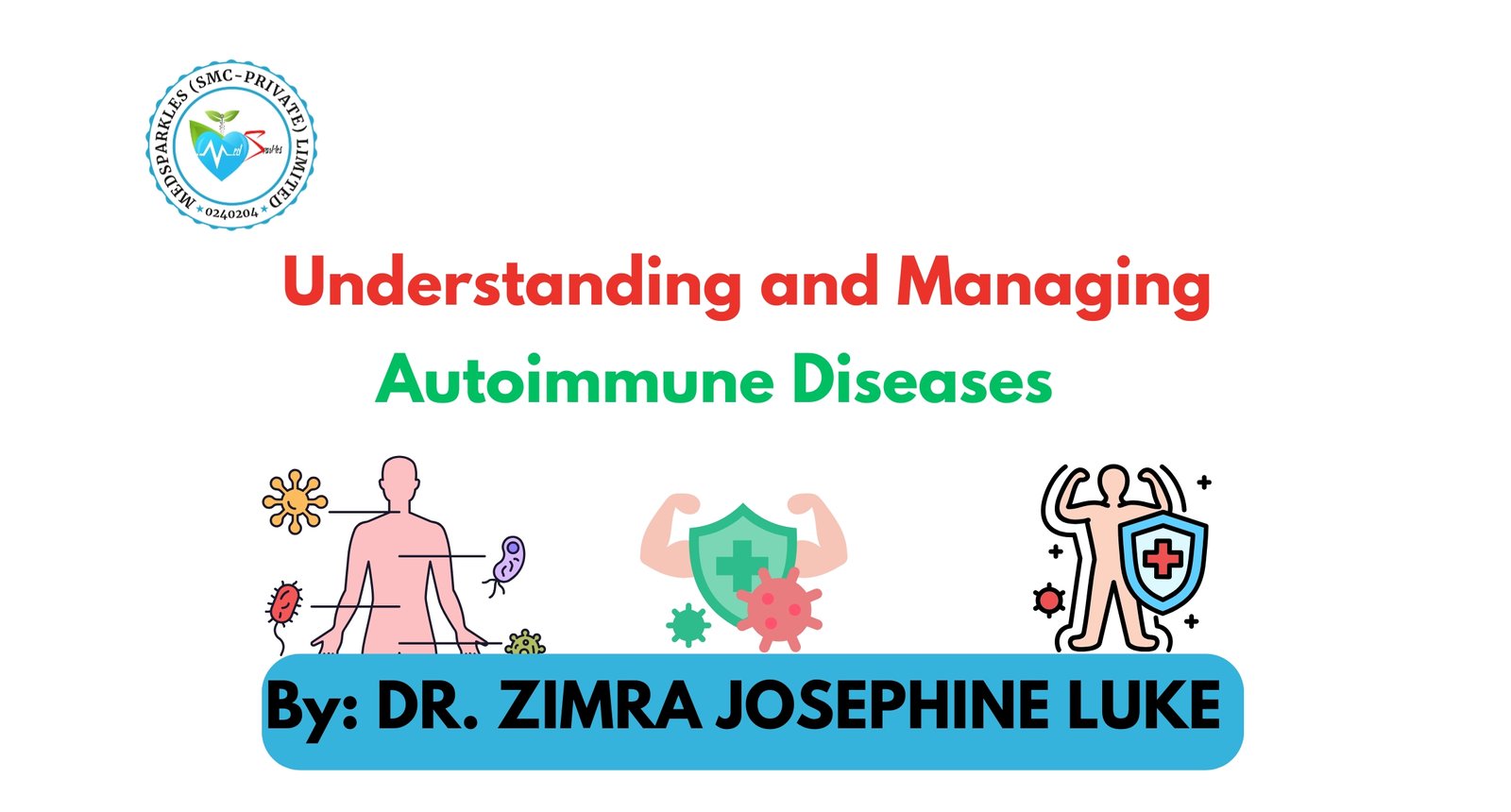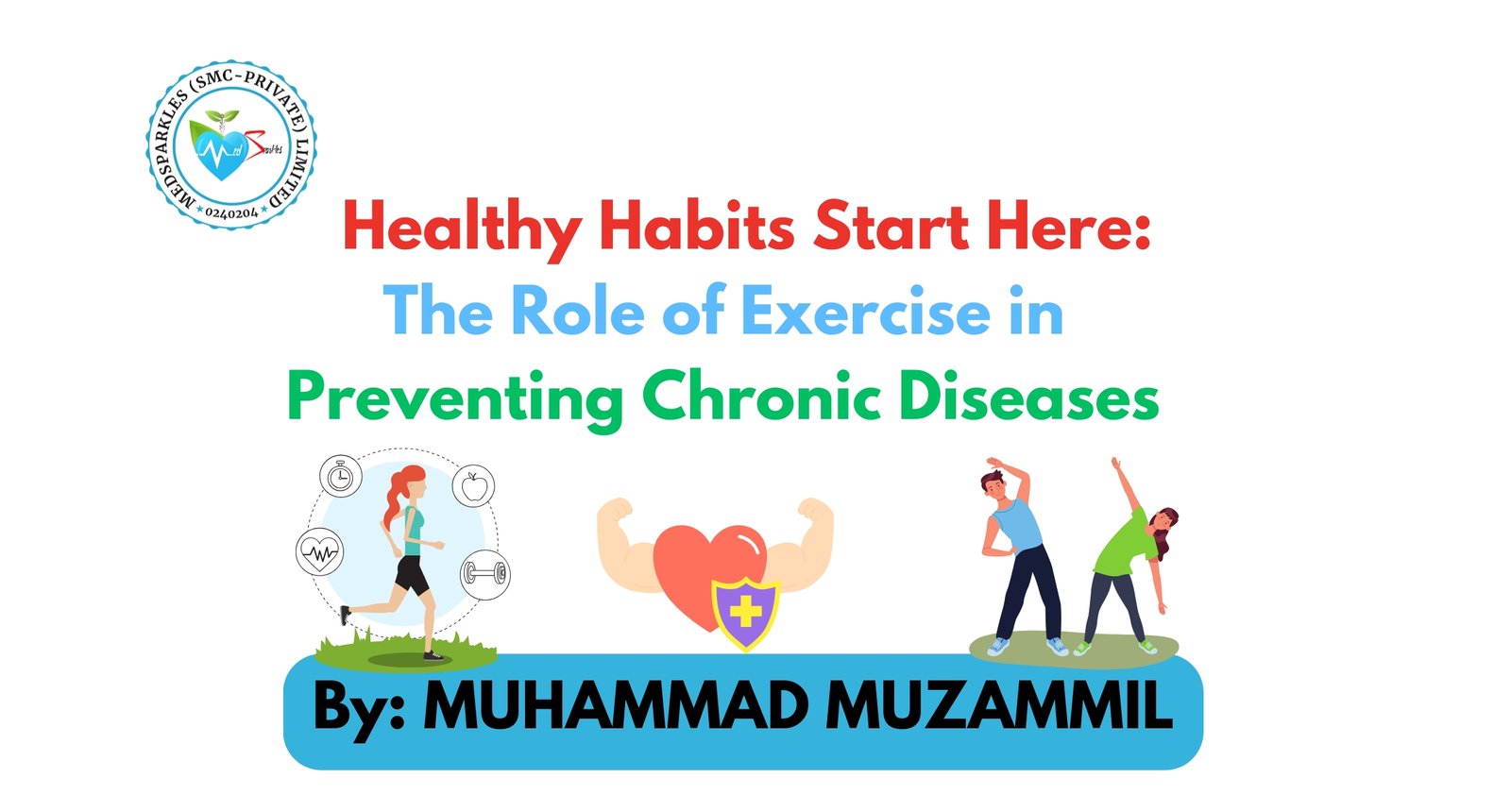PCO syndrome (polycystic ovary syndrome, PCOS) is one of the most common hormonal disorders in women of childbearing age. It is estimated that around five to ten out of every hundred women are affected by PCO syndrome. It is a hormonal disorder that is associated with numerous symptoms. Rare or absent periods, increased hair growth on the face and body, acne and also an unfulfilled desire to have children can be signs of this condition. PCO syndrome can also lead to infertility and chronic diseases such as type 2 diabetes mellitus and cardiovascular diseases. Early diagnosis and treatment are therefore important.
Polycystic ovary syndrome (PCOS) is a hormonal disorder that, in extreme cases, can lead to infertility and represents a great psychological burden for those affected – how can PCOS be recognized and what treatment can help?
What is Polycystic Ovarian Syndrome (PCOS)?
PCOS is a hormonal disorder and one of the most common hormonal diseases in women of childbearing age. It usually occurs between the ages of 20 and 30. In simple terms, the function of the ovaries is impaired in those affected. The ovaries normally produce female and, to a lesser extent, male sex hormones. The ovaries of women with PCOS produce too many of these male sex hormones, which causes the balance to become unbalanced. Numerous vesicles (cysts) can be seen in the tissue of the ovaries – hence the term “polycystic”.
It is still unclear how and why this form of hormonal disorder occurs. One factor is probably a genetic predisposition. What is certain is that up to 80 percent of affected women are overweight, so there is a connection between polycystic ovary syndrome and body weight. Being overweight can lead to an increased production of male sex hormones. Often there is also a disturbed sugar metabolism, which in turn can promote the disease. Insulin not only regulates blood sugar levels, but also promotes the production of the male sex hormone testosterone.
How do you know if you have PCOS?
The hormonal imbalance can cause numerous problems. The spectrum ranges from menstrual disorders to infertility and masculinization. Often, however, the affected women only experience individual symptoms, which could also have other causes. This is why polycystic ovary syndrome often goes undetected.
Possible physical symptoms of PCOS
- Cycle disorders : irregular or completely absent menstrual bleeding because ovulation rarely or not at all occurs; noticeably heavy bleeding
- Fertility : limited fertility or infertility
- Body hair : unusually thick hair growth in a more male pattern, for example increased hair growth in the pubic area, hair on the chest or on the face
- Skin problems (e.g. acne ) due to hormonal imbalance
- Hair loss : also following a male pattern (e.g. receding hairline)
- Strong masculinization : (rarely) deeper voice and enlargement of the clitoris
The gynecologist can detect other symptoms of PCOS during an examination, such as enlarged ovaries or the blisters that often form there.
Psychological Consequences of Polycystic Ovarian Syndrome
Symptoms such as infertility or visible changes in the body often have a detrimental effect and can
severely impair the quality of life . Many women with polycystic ovary syndrome therefore have psychological problems; they develop exaggerated fears and even anxiety disorders and despair about their own body image. Others develop an eating disorder or struggle with depression .
What consequences can occur?
If PCOS is not recognized and treated in time, or not recognized and treated in time, it can lead to serious health problems. Affected women not only have difficulty getting pregnant over time, but the risk of various other diseases increases. Affected women have an increased risk of developing metabolic syndrome or type 2 diabetes , or of suffering a heart attack or stroke . Women with PCOS are also at risk of developing uterine cancer .
How is PCOS diagnosed?
Experts speak of PCOS when at least two of the following three symptoms are present:
- Cycle disorders: oligomenorrhea or amenorrhea
- Excess of male hormones in the blood (hyperandrogenemia) and/or “masculinization” ( increased body hair, acne , etc. ).
- Numerous cysts on the ovaries: These can be seen in a vaginal ultrasound (transvaginal ultrasound).
Medical history & physical examination
Most women affected by menstrual irregularities or an unfulfilled desire to have children visit their gynecologist. In the first step, the doctor asks in a detailed conversation ( anamnesis ) how regular the menstrual bleeding is, how puberty progressed, about contraceptives ( the pill or IUD ) or whether there is a family history.
The doctor will also ask about other symptoms of illness, such as whether the body hair has changed or whether the woman is suffering from weight or skin problems. The doctor will also discuss the desire to have children . It is best if the woman brings a menstrual calendar with her, in which the time, intensity and any additional symptoms of her period have been noted. This will allow the gynecologist to get an idea of the woman’s cycle.
This is followed by a physical and gynecological examination. This includes determining body weight ( BMI calculation ) and measuring blood pressure.
Often the doctor can diagnose “PCO syndrome” based on the combination of symptoms ( e.g. menstrual disorders and masculinization).
Ultrasound & hormone determination

The doctor often also carries out a vaginal ultrasound examination . The doctor can recognize PCOS by the presence of many small follicles in the ovary. A blood test can also be used to determine the amount of various hormones in the blood. The following hormones are determined, among others :
- LH ,
- FSH ,
- estradiol ,
- testosterone ,
- androstenedione,
- DHEAS ,
- 17 OH-progesterone,
- SHBG ,
- TSH ,
- prolactin
- anti-Müllerian hormone
In order to identify possible risk factors for high blood pressure , diabetes mellitus , heart disease , etc. at an early stage, it is advisable to carry out further examinations:
- BMI
- measuring waist circumference
- measuring blood pressure
- Determine blood lipids (LDL, HDL, triglycerides) in the blood
- Sugar test (oral glucose tolerance test) and determination of insulin
How can PCOS be treated?
PCOS is not curable, but it can be treated . It is important to start treatment as early as possible so that symptoms do not arise in the first place and secondary diseases can be avoided. There is also a suspicion that untreated PCOS increases the risk of heart attack, stroke and uterine cancer . Treatment also depends on whether the patient wants to have children.
Diet and lifestyle
The main focus of PCOS treatment is lifestyle changes. This is especially true for women who are overweight or suffer from impaired sugar metabolism.
Losing weight can lead to a significant improvement in symptoms in five to ten percent of those affected. Sufficient physical exercise can also stabilize hormone levels and sugar metabolism. Experts recommend regular physical activity for women aged 18 and over. If the intensity is light, this should be 150 to 300 minutes per week if possible. If the intensity is high, 75 to 150 minutes is sufficient.
Drug treatment
In addition to lifestyle changes, treatment with medications for treating diabetes mellitus , such as metformin, may also be indicated. This medication can have a positive effect on the cycle and thus on fertility, but also on skin problems and body weight.
Accompanying treatment
Cosmetic problems such as acne or excessive hair growth are often very stressful for the women affected and can be treated locally. For example, professional laser hair removal can help with excessive hair growth, while medical ointments or laser treatments can help with skin problems and acne.
PCOS treatment for those wanting to have children
If PCOS is detected early, pregnancy is usually still possible . Doctors prescribe medication to help the egg cells mature and trigger ovulation. In rare cases – if this hormone treatment does not work – surgery is considered: some of the cysts in the ovaries are destroyed using heat, which can improve the organ’s functionality and normalize the cycle. In some cases, artificial insemination is still necessary, i.e. the conception of the embryo outside the womb. Its implantation in the uterus and development are then supported with medication.
In addition, doctors can consider using medications such as metformin for overweight patients, which, among other things, reduces insulin resistance in cells. As a result, the amount of male sex hormones decreases. Metformin is actually prescribed for type 2 diabetes mellitus and is not approved for PCOS.
PCOS treatment without the desire to have children
In patients who do not want children or who have already completed family planning,
hormonal contraceptives such as the contraceptive pill can help to stabilize the bleeding cycle. They also reduce the effect of testosterone and thus masculinization. Regular bleeding and renewal of the mucous membrane also reduces the risk of uterine cancer. Metformin is also an option in cases of obesity.
What can you do yourself?
If you have been diagnosed with PCOS, you should try to lose any excess weight and maintain a healthy lifestyle . Weight loss, exercise and a balanced diet will help reduce symptoms.
If you are suffering from psychological problems due to polycystic ovary syndrome, it is important that you seek professional support. Speak to your doctor so that you can be referred to a specialist. It can also help if you talk to other sufferers in a self-help group.







